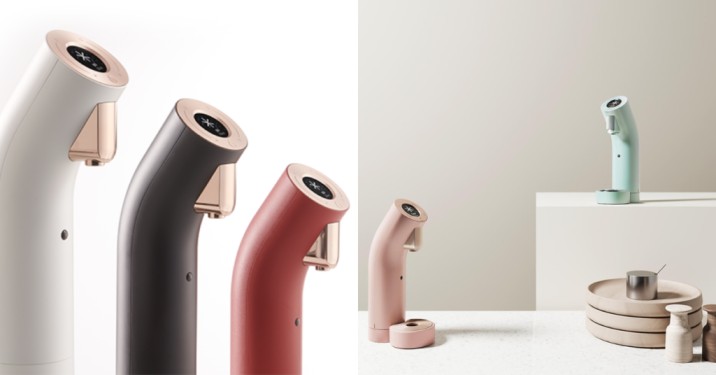Access to clean and safe drinking water is a fundamental human right, yet many people around the world still face challenges with water quality. In recent years, water purifiers have gained popularity as an essential household appliance, providing a reliable solution for ensuring potable water. This article examines how purified water contributes to overall health and well-being, exploring the benefits of using water purifiers and the potential health risks associated with contaminated water.
Understanding Water Quality and Its Importance
Water is a vital resource for life, making up a significant portion of the human body and playing critical roles in various physiological processes. However, the quality of water can vary widely based on its source. Contaminated water can pose serious health risks, including gastrointestinal diseases, reproductive issues, and long-term health complications.
Common Contaminants in Water
- Microbial Contaminants: Bacteria, viruses, and parasites can enter water supplies through fecal contamination, leading to diseases such as cholera, dysentery, and giardiasis.
- Chemical Pollutants: Heavy metals (like lead and mercury), pesticides, and industrial chemicals can leach into water supplies, posing significant health risks.
- Chlorine and Chloramines: While these chemicals are used to disinfect water, they can also result in unpleasant tastes and odors, and may have adverse health effects when consumed over time.
- Sediments and Particulates: These can affect water clarity and taste, and may harbor harmful substances.
How Water Purifiers Improve Water Quality
Water purifiers are designed to remove these contaminants, providing clean and safe drinking water. Various types of purification technologies exist, including activated carbon filters, reverse osmosis (RO), ultraviolet (UV) purification, and more. Each method targets specific contaminants effectively, ensuring that the water consumed is free from harmful substances.
Activated Carbon Filters
Activated carbon filters are one of the most commonly used types of water purifiers. They work by adsorbing impurities, including chlorine, sediment, and volatile organic compounds (VOCs), effectively improving the taste and odor of water.
- Health Benefits: By removing chlorine and other chemicals, activated carbon filters help reduce the risk of consuming harmful substances, leading to safer drinking water.
Reverse Osmosis Systems
Reverse osmosis systems use a semi-permeable membrane to remove a wide range of contaminants, including heavy metals, salts, and microorganisms.
- Health Benefits: RO systems provide some of the purest water available, significantly reducing the risk of waterborne diseases. They are particularly beneficial in areas with known water quality issues, ensuring that harmful substances are effectively filtered out.
Ultraviolet (UV) Purification
UV purification systems use ultraviolet light to kill bacteria and viruses in water.
- Health Benefits: UV systems are highly effective at disinfecting water without the use of chemicals, providing an additional layer of safety against microbial contaminants.
Health Benefits of Drinking Purified Water
Reduced Risk of Waterborne Diseases
One of the most significant health benefits of using a water purifier is the reduction in the risk of waterborne diseases. Access to clean water helps prevent illnesses caused by pathogens, which can be especially dangerous for vulnerable populations, including children and the elderly.
Improved Hydration
Purified water is often more palatable than untreated water, encouraging individuals to drink more. Proper hydration is essential for overall health, as it supports bodily functions, including digestion, circulation, and temperature regulation.
Enhanced Nutrient Absorption
Drinking purified water can improve nutrient absorption in the body. When water is free from contaminants, it facilitates better digestion and allows nutrients from food to be absorbed more efficiently.
Support for Healthy Skin
Staying hydrated is crucial for maintaining healthy skin. Drinking clean, purified water can help keep the skin hydrated and may reduce the likelihood of skin issues such as dryness and irritation.
Better Taste and Odor
Many people find that purified water tastes better than tap water, which can be affected by chlorine and other contaminants. A more pleasant taste encourages higher water consumption, contributing to better overall hydration.
The Environmental Benefits of Water Purifiers
Using water purifiers not only impacts health but also has positive environmental effects. Here’s how:
Reduction in Plastic Waste
With the increasing reliance on bottled water, plastic waste has become a significant environmental issue. By using a water purifier, individuals can reduce their dependence on bottled water, significantly decreasing plastic waste.
Sustainable Water Use
Water purifiers promote the use of local water sources rather than relying on bottled water, which often comes from distant sources. This practice supports local water management efforts and encourages sustainable usage of regional water supplies.
Choosing the Right Water Purifier
To maximize health benefits, it’s essential to select the right water purifier for your needs. Here are some factors to consider:
Assess Water Quality
Conduct a water quality test to identify specific contaminants in your local water supply. Understanding what you need to filter out will help you choose the most suitable purification system.
Filter Types
Consider the types of filters available and their effectiveness against the contaminants present in your water. For example, if microbial contamination is a concern, a UV purifier or RO system may be ideal.
Maintenance and Costs
Evaluate the maintenance requirements and long-term costs associated with each filtration system. Regular filter replacement is crucial for maintaining water quality, so choose a system that fits your budget and lifestyle.
Conclusion
The impact of water purifiers on health cannot be overstated. By providing access to clean, safe drinking water, these systems help reduce the risk of waterborne diseases, improve hydration, and support overall well-being. Moreover, using water purifiers contributes to environmental sustainability by reducing plastic waste and promoting the use of local water sources. As awareness of water quality issues continues to grow, investing in a water purifier is a proactive step toward safeguarding health and fostering a more sustainable future. With the right choice of purification system, individuals can enjoy the numerous health benefits of purified water and contribute to a cleaner, healthier environment for all.
